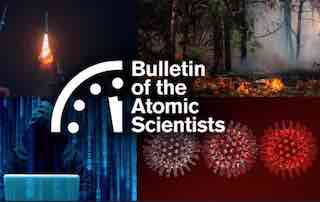
Since invading Ukraine in February, the Russian government has tirelessly worked to convince others of the existence of an illicit US-Ukrainian bioweapons program. It’s brought the claims to the UN Security Council, the Biological Weapons Convention, and other international venues, sometimes more than once. Earlier this month, Moscow went to the Security Council for the fourth time this year. This time, Russian diplomats triggered a never-before invoked mechanism to vote on creating a commission to investigate its bioweapons allegations. Once again, few countries sided with Russia. The permanent members of the Security Council voted Russia down 3-2. And while the fact that the council’s 10 temporary members abstained from the vote might seem, at first glance, like a sign that Russia still has some support, that wasn’t the case. A closer examination reveals that the abstentions were a protest against Russia’s diplomatic maneuvers, not an indication of indecisiveness or lack of engagement.
The Russian claims the Security Council weighed last month concerned “military biological activities.” If the allegations seem stale that’s because they are. Russia presented the Security Council with a 310-page dossier of supposed evidence that largely mirrored the information it had aired in September, that time at a Biological Weapons Convention “consultative” meeting. Moscow was unlikely to win over converts at the Security Council this time around with the same claims for a simple reason: The countries on the Security Council had, of course, been at the September meeting, and many had rejected Russia’s arguments then.
The Russian claims—debunked by experts and refuted by UN officials—risk undermining the norms against bioweapons. Now, through no-votes and carefully crafted abstentions, the Security Council not only rejected Moscow’s claims, but helped to bolster two pillars of the bioweapons treaty—the right of bioweapons treaty members to go to the Security Council with complaints and the right to peaceful biological cooperation. What Moscow does next, after its failure at the Security Council—whether its diplomats walk back efforts to claim a US-Ukrainian bioweapons program, or they double down on the allegations in different international venues—will help determine whether negotiators can make much progress on thorny biological weapons issues or whether they will be tied up with more whack-a-mole votes, in this or that arena, on Russia’s fabrications.
Source: Jez Littlewood, Filippa Lentzos, “Russia (again) peddles its debunked US-Ukrainian bioweapons claims at the United Nations,” Bulletin of Atomic Scientists, November 15, 2022. The complete Text can be read here.